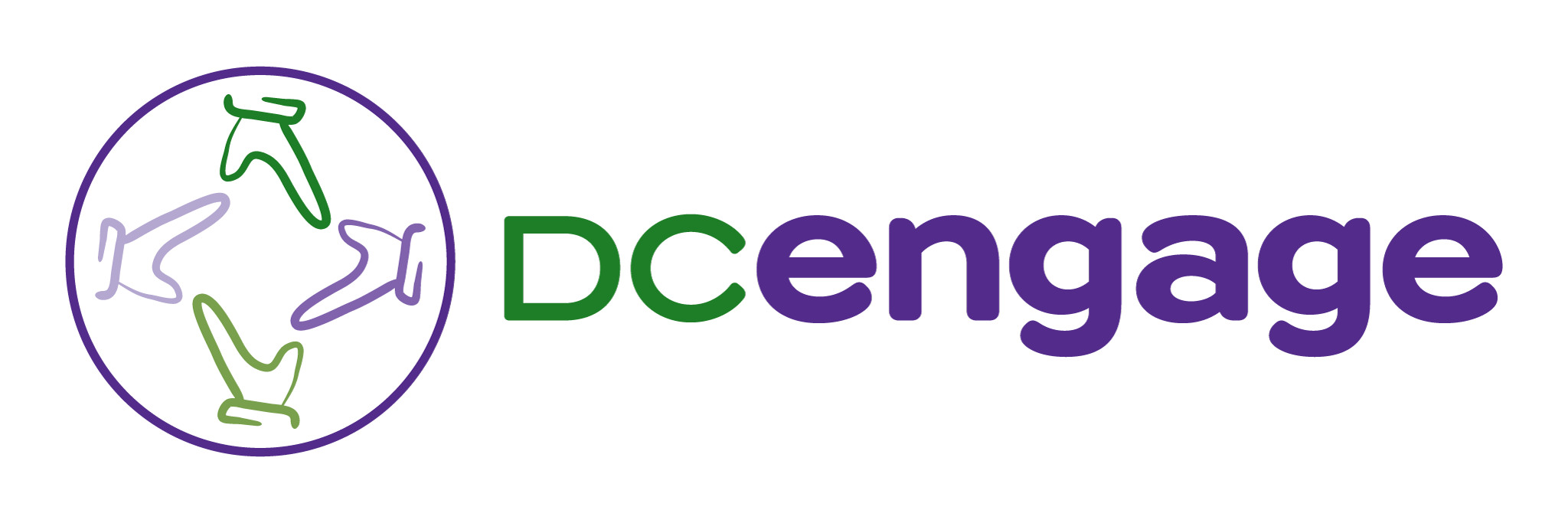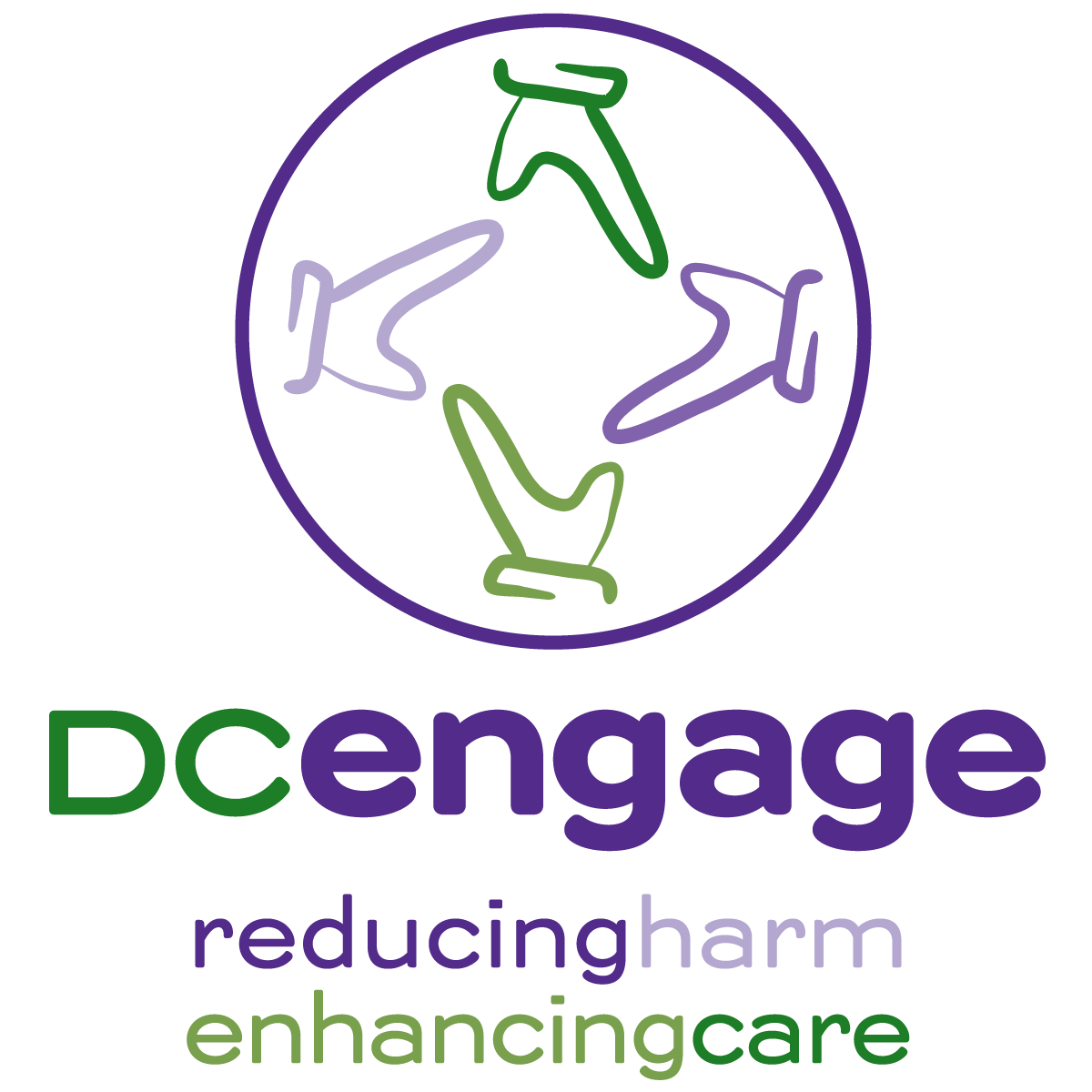
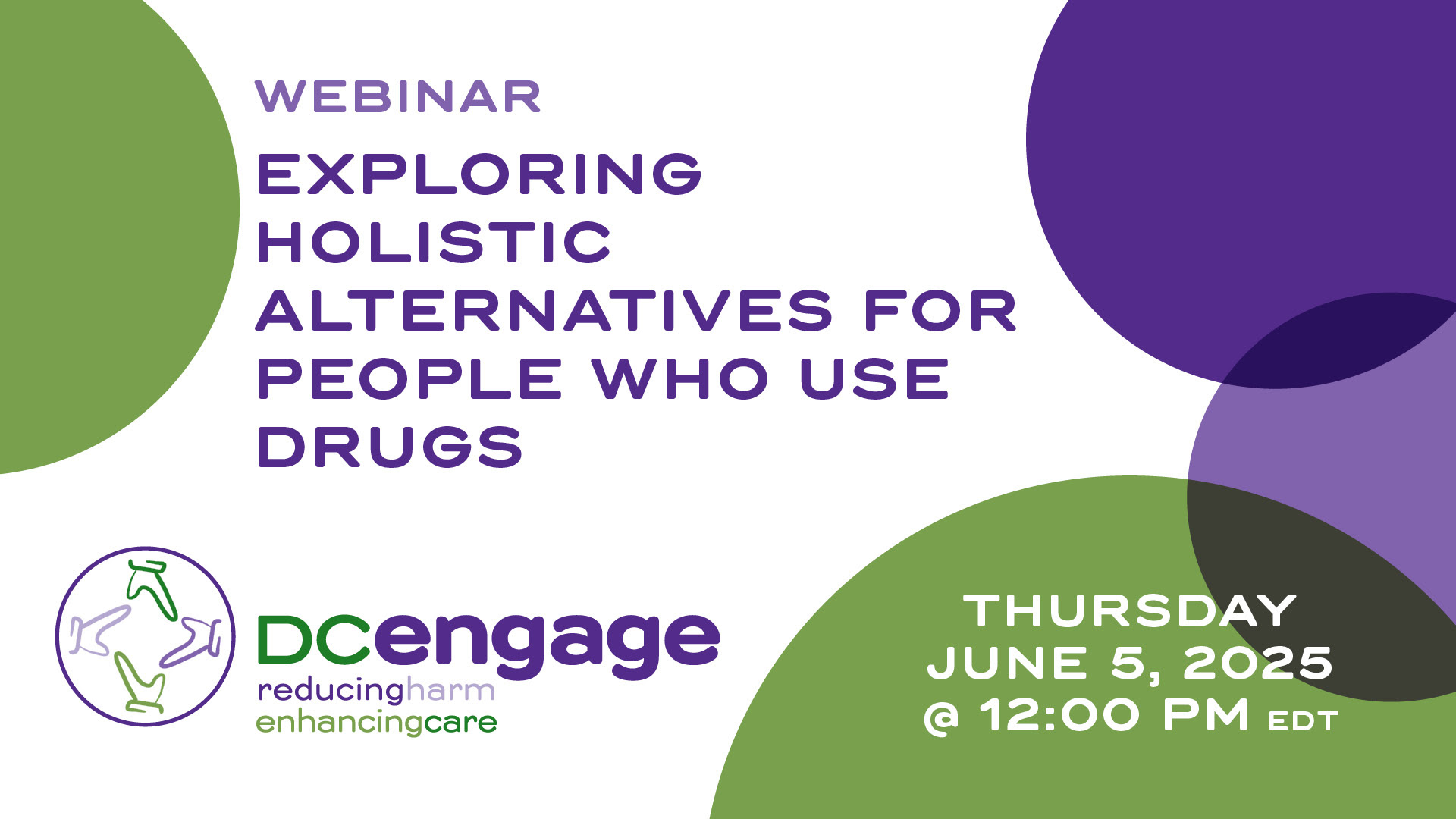
Description:
This webinar explores holistic and person-centered approaches to supporting the health and well-being of people who use drugs. Presenters will examine nontraditional practices as complementary tools in harm reduction and recovery settings. Emphasis will be placed on cultural relevance, accessibility, and the importance of honoring individual agency and lived experience in holistic care models.
Target Audience:
This activity is intended for all persons working at community-based organizations, medical practices, or other entities which serve people who use drugs.
Subject matter:
People Who Use Drugs, Harm Reduction, Holistic Alternatives
Learning Objectives:
-
Identify at least three holistic approaches that can complement traditional harm reduction and recovery services for people who use drugs.
-
Describe how culturally responsive and trauma-informed holistic practices can enhance engagement and trust among participants.
-
Apply strategies to integrate holistic alternatives into existing outreach, clinical, or community-based programs.
Faculty:
Dr. Ashley Elliott, PsyD, affectionately known as Dr. Vivid, is a licensed clinical psychologist, motivational speaker, and native Washingtonian dedicated to empowering underserved communities. With firsthand insight into the impacts of trauma, substance use, and mental illness, she founded Vivid Innovations Consulting to provide mental health services, education, and lifestyle support. Her clinical focus includes community mental health, BIPOC and LGBTQIA+ centered care, substance use treatment, and the integration of creative and non-traditional healing methods. Dr. Elliott also leads free youth programs in DC, hosts the Cope Chat with Dr. Vivid wellness series, and shares psychoeducational tools through her podcast, Vividly Speaking with Dr. Vivid.
Antoine Lee is a seasoned Human Resources professional with over two decades of experience in employee relations, diversity and inclusion, compliance, and organizational development. He currently serves as a Human Resources Specialist at the Peace Corps, where he provides expert consultation on employee relations matters for a large and diverse workforce. Antoine holds a Master’s degree in Human Resource Management from Webster University and a Bachelor’s degree in Sociology from the University of Louisville. Known for his dynamic facilitation style and deep commitment to civil rights and equity, Antoine brings both lived experience and strategic expertise to every conversation he leads. His insight into navigating systemic barriers and promoting organizational accountability makes him a trusted voice in the field.
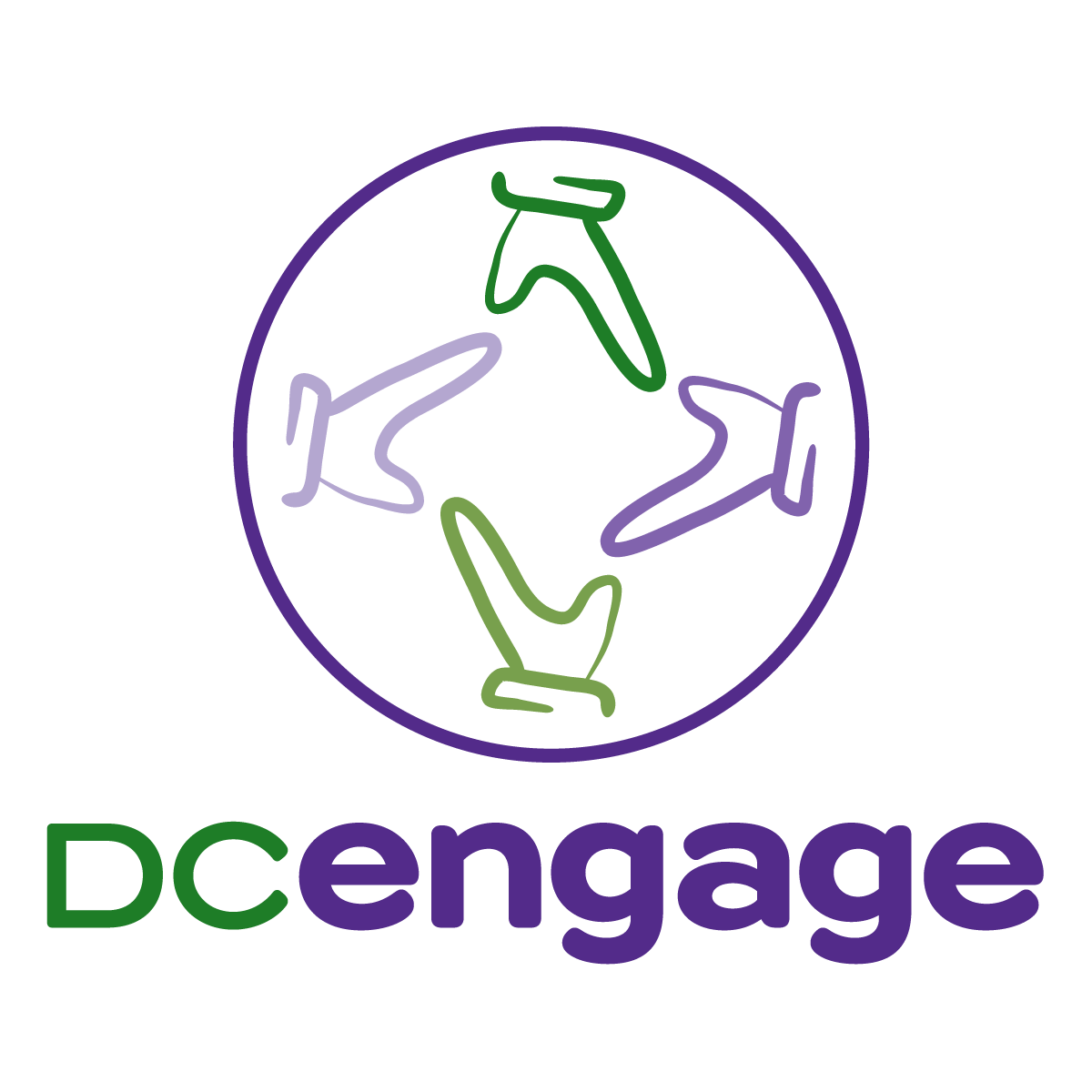
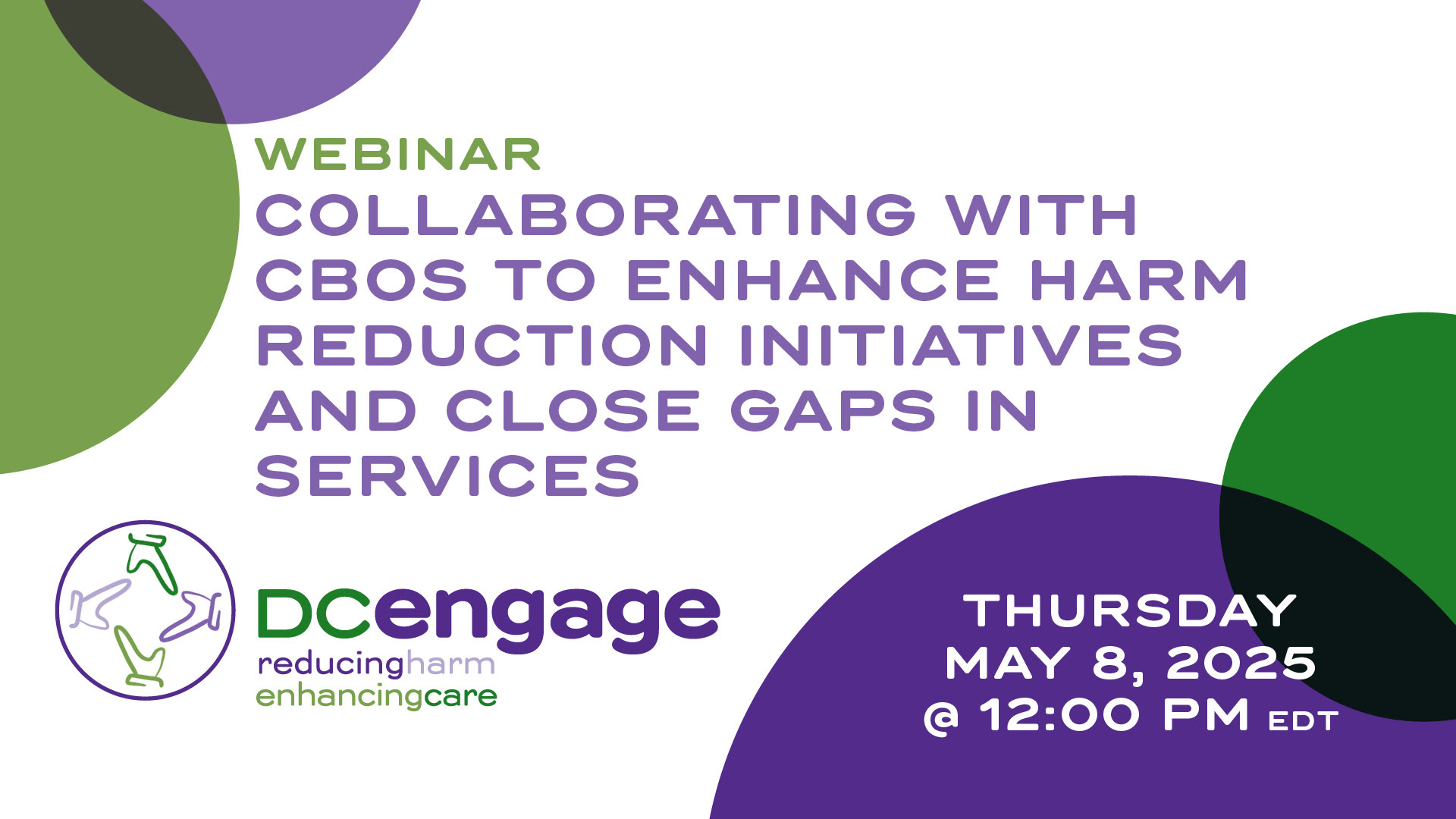
Description:
This webinar will explore how community-based organizations can strengthen harm reduction efforts by working together to create a seamless network of support. By identifying service gaps and forming strategic partnerships within their immediate region, CBOs can offer a more comprehensive, wraparound approach to care—ensuring that individuals have continuous access to essential services like overdose prevention, housing support, healthcare navigation, and peer-led interventions. Participants will gain insights into successful collaboration models, practical strategies for resource-sharing, and ways to improve service coordination to enhance outcomes for the populations they serve.
Faculty:Chantil Thomas, MA
Learning Objectives
By the end of the webinar, participants will be able to:
-
Review assessment strategies to identify gaps in harm reduction services in a community
-
Explore models of successful collaboration between organizations
-
Describe practical strategies for resource sharing to improve harm reduction services
-
Explain the importance of a comprehensive, wraparound approach to harm reduction
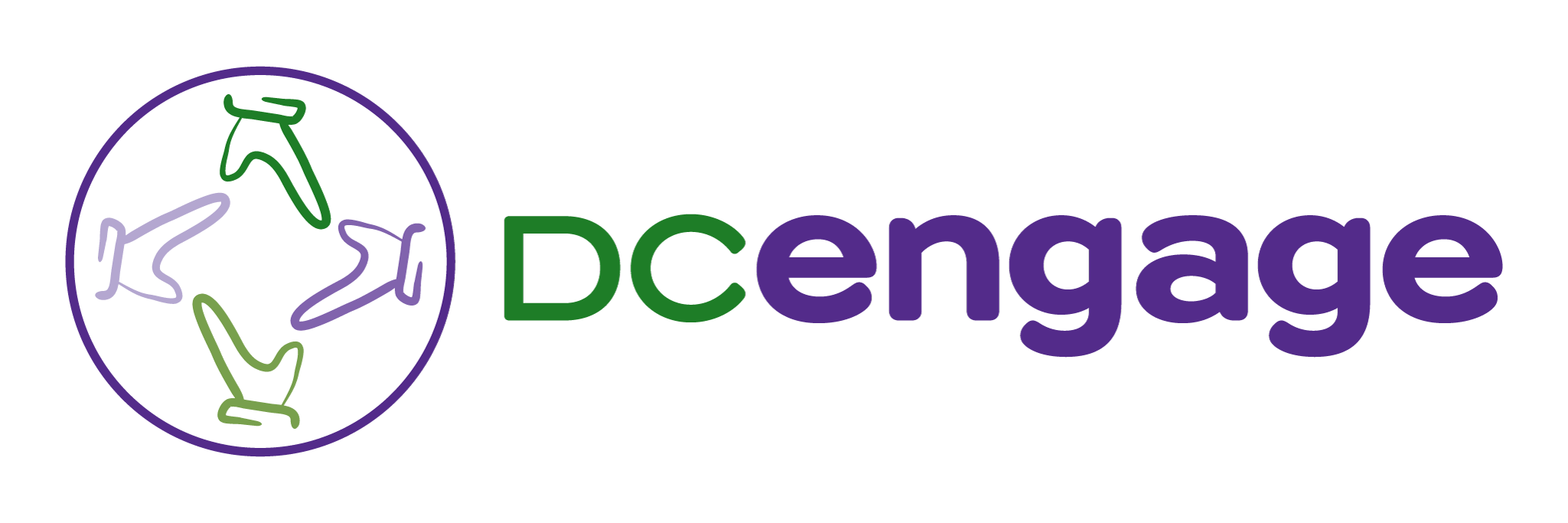
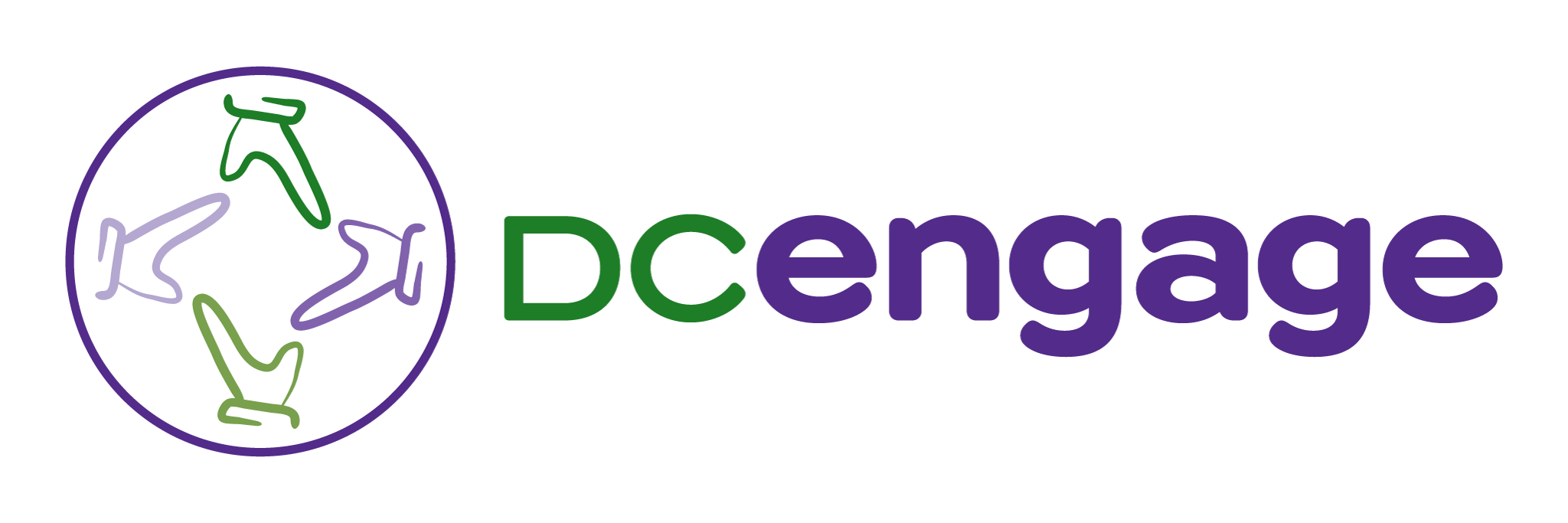
Description: This insightful webinar will guide you through the crucial steps in accessing substance use disorder (SUD) treatment spaces. Gain a nuanced understanding of the diverse range of SUD treatment options available within the continuum of care. Learn to discern the right candidates for referral to these programs and develop effective communication strategies for facilitating these crucial conversations. We'll explore the pivotal role of sustained, open-ended discussions in the context of SUD treatment, and recognize the invaluable perspectives brought by People Who Use Lived Experience (PWLE) to this process. Prepare to enhance your proficiency in bridging the gap to SUD treatment spaces and providing essential support to those in need.
Faculty: Carolina Diaz, ACR Health & Elizabeth Wright, ACR Health
Learning Objectives:
Upon completion of this webinar, participants will be able to:
- Define and differentiate SUD treatment spaces within the continuum of care.
- Identify the appropriate candidates for referral to SUD treatment programs.
- Develop effective communication strategies for discussing and referring patients to SUD treatment services.
- Locate nearby SUD treatment spaces for seamless patient referrals.
- Appreciate the significance of sustained, open-ended discussions in the context of SUD treatment, and recognize the unique value that People Who Use Lived Experience (PWLE) bring to this process.
NOTE: This session does NOT offer continuing education credits.
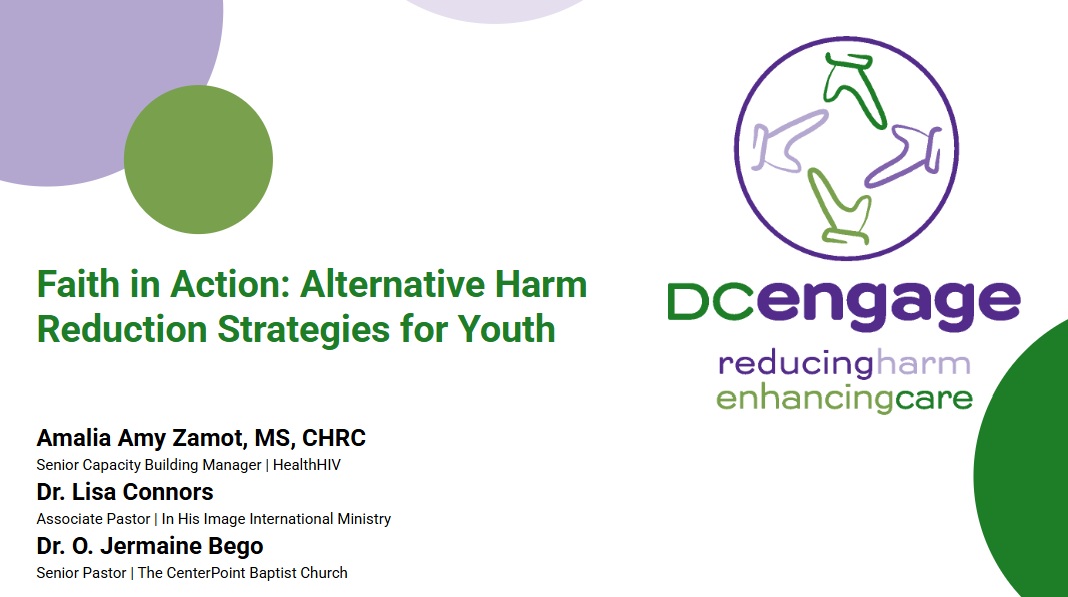
Description
Join us for an insightful and transformative presentation as we explore the intersection of faith, community support, and youth well-being. In this panel discussion, we will examine alternative harm reduction strategies for addressing substance use, mental health challenges, and risky behaviors among young people in our congregational settings.
Our panel of faith leaders, social service professionals, and youth advocates will share their experiences, expertise, and strategies for creating compassionate, non-judgmental environments that foster healing, resilience, and positive life choices. With a focus on inclusivity, empathy, and practical approaches on how faith communities can be a beacon of hope and healing for young people facing challenging circumstances.Target Audience
This activity is intended for physicians, pharmacists, registered nurses, PAs, psychologists, social workers, youth workers, faith leaders, and other healthcare providers engaged in the care of patients with HIV.
Learning Objectives
Upon completion of this activity, participants will be better able to:
- Describe at least three alternative harm reduction strategies that can implemented within congregational settings to provide healing and resilience in youth
- Discuss the role of faith communities in creating inclusive, compassionate, and non-judgmental environments that foster trust and healing for at-risk youth.
- Explore strategies for collaboration between faith communities, local organizations, and families to build supportive networks that enhance the well-being of young people in congregational settings.
Continuing education credits are not available for this webinar
Faculty:
- Amalia Amy Zamot, MS, CHRC has been active in the field of HIV for more than 25 years. Her career began in Ryan White case management where she was able to provide HOPWA, ADAP, PAC WAIVER, and AICP services, in addition to general Ryan White case management services. She then moved into a regional position serving all of southwest Florida as the Regional Minority HIV/AIDS Coordinator. In this capacity she served as a liaison between the community and the Department of Health, providing community mobilization and engagement, data interpretation, event coordination, curriculum development and training to increase HIV awareness and service access for ethnic and racial minority populations throughout the area.
- Dr. Lisa Connors is the Associate Pastor of IN HIS Image International Ministry in Maryland. She is a licensed clinical professional counselor (MD), licensed professional counselor (PA), National Certified Counselor, Board Certified Coach, and Master Addiction Counselor. Dr. Connors works tirelessly to help others reach their fullest potential in life, helping and supporting others who have been oppressed, stigmatized, marginalized, and victimized. Her greatest passion is working with individuals affected by HIV/AIDS, substance use, mental health disorders, violence, grief and loss, and racial and social injustices. Dr. Connors aspires to help others; her motto is "God has blessed me so I can be a blessing to others." In addition to her pastoral and clinical work, Dr. Connors is a trainer, a college professor, and a consultant to state and national organizations.
- Rev. Orlando Bego currently serves as the Senior Pastor at CenterPoint Baptist Church in Washington, D.C. He is also the owner of the Transformative Coaching and Training Center (TC2), which provides relationship and faith coaching to African American men. He is an ordained minister in both the Missionary Baptist denomination and the American Baptist Church USA.
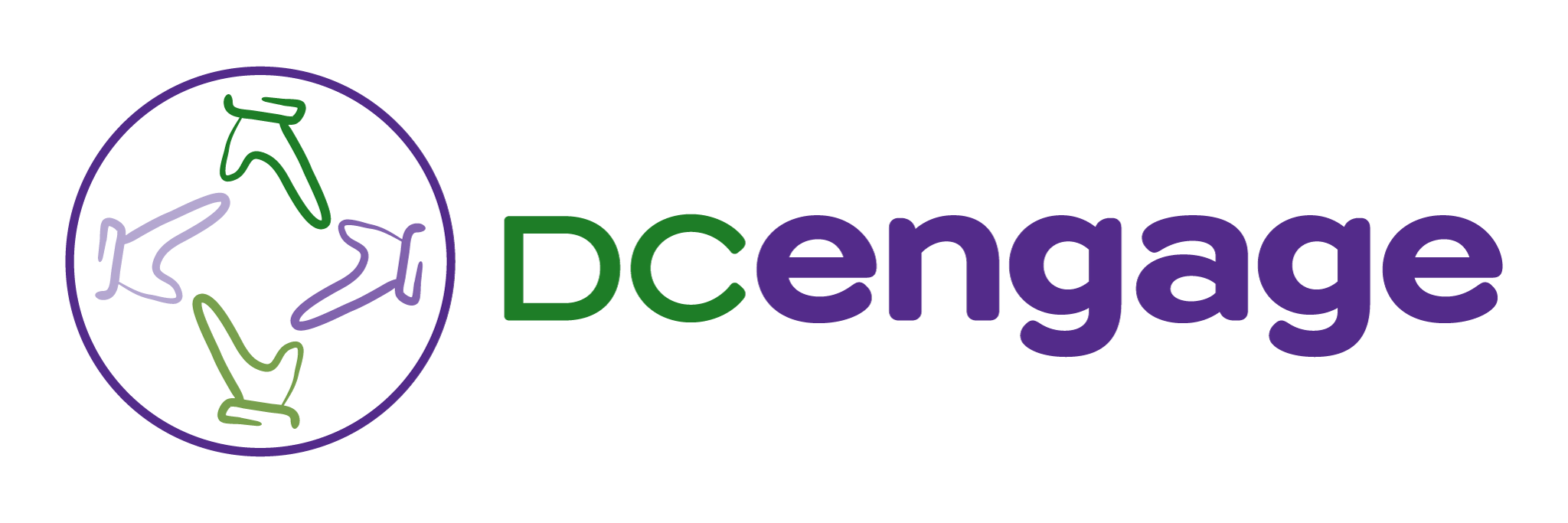
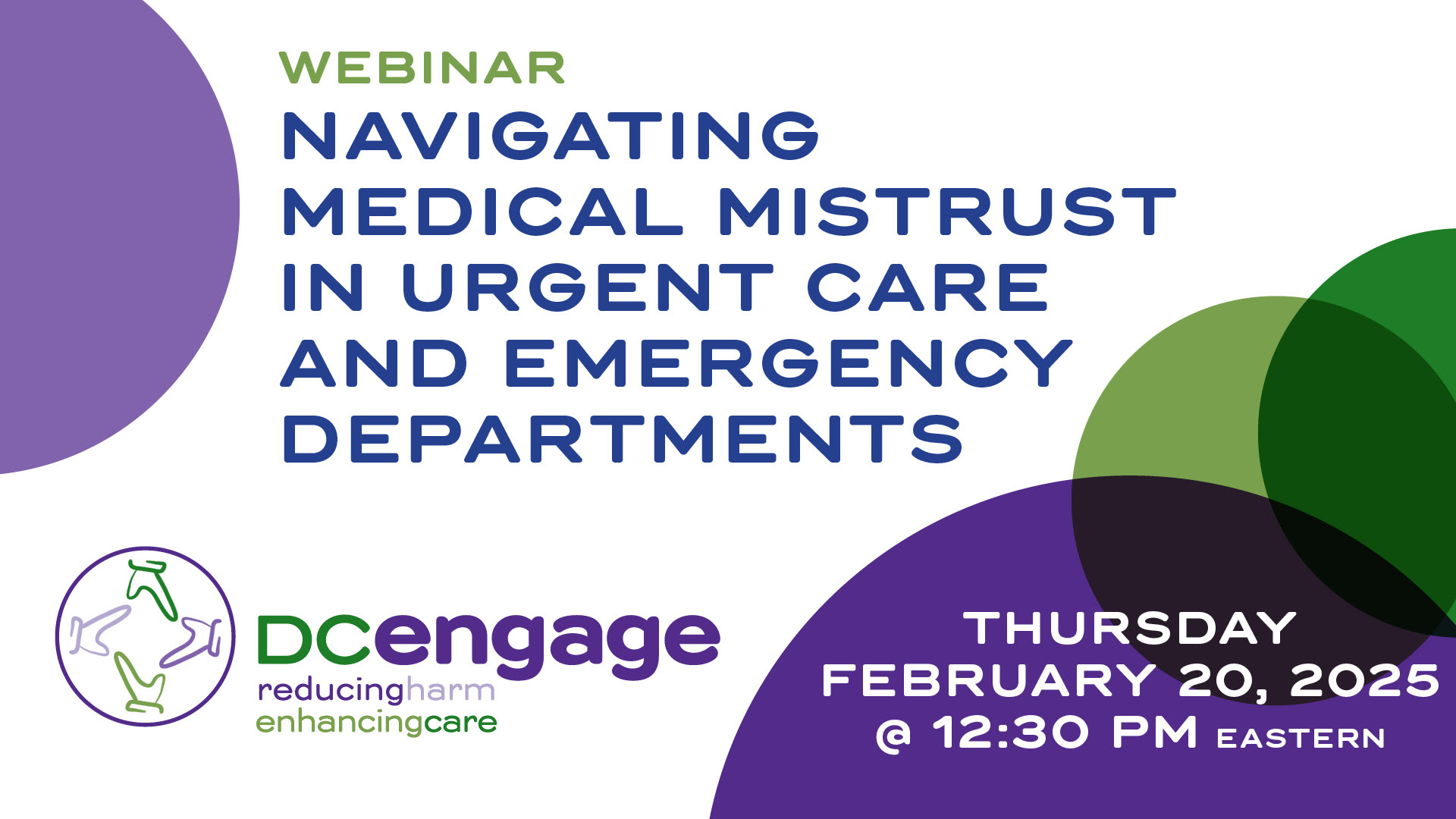
Description: This webinar will address the critical issue of medical mistrust among individuals who use drugs, especially within the high-stress environments of emergency departments and urgent care centers. Many people who use drugs face unique barriers to receiving compassionate, non-judgmental care in these settings, often due to past experiences of discrimination, stigmatization, and misunderstanding.
Target Audience: This activity is intended for physicians, pharmacists, registered nurses, PAs, psychologists, social workers and other healthcare providers engaged in the care of patients who use drugs
Faculty:
- Mauda Monger PhD, MPH Assistant Professor, University of Mississippi Medical Center
Learning Objectives:
- Explain the Root Causes of Medical Mistrust
- Recognize the Impact of Medical Mistrust on Health Outcomes
- Describe the Role of Stigma in Emergency Department Care
- Identify Strategies to Build Trust in Emergency Care Settings
NOTE: This course does NOT offer continuing education credits.


Description: This webinar highlights the importance of using multiple data sources to increase the efficacy of outreach, client engagement and program success. Participants will learn vital information on how to best use data and statistics, as well as real world application to inform the community about prevention in regards to HIV, HCV, STIs, and Drug User Health.
Faculty:
- Steve Wood, Senior Education and Advocacy Coordinator at HealthHIV
- Sarah Brodt, MPH, Associate Director of Health Services Research and Evaluations at HealthHIV
Learning Objectives:
- Recognize local, state, and national data sources as guiding tools in community health initiatives to effectively inform decision-making processes.
- Explain the critical role of documentation in community health management.
- Discuss the significance of data collection for Community-Based Organizations (CBOs) and its role in motivating their initiatives and spaces.
- Describe strategies to enhance health outcomes through effective data utilization, including identifying relevant data, analyzing it, and implementing informed interventions.
- Identify methods to leverage local data sources to address gaps in service provision.
NOTE: This course does NOT offer continuing education credits.
